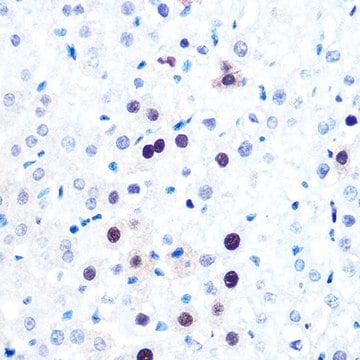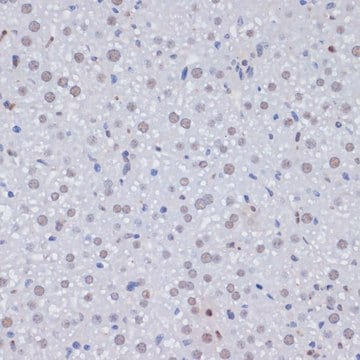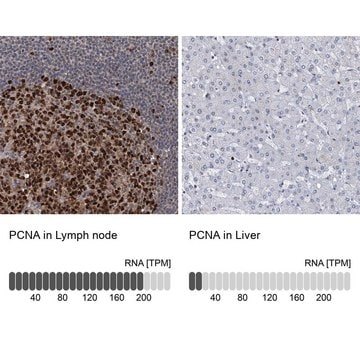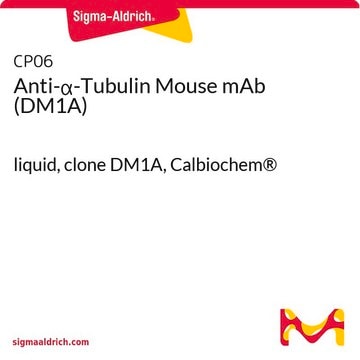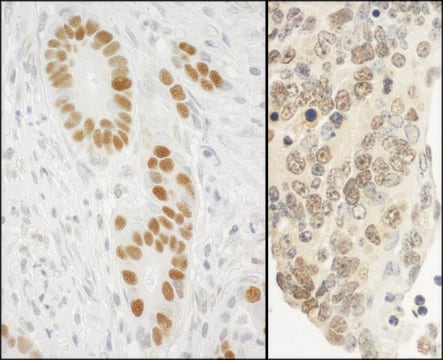PLA0079
Rabbit anti-PCNA Antibody, Affinity Purified
Powered by Bethyl Laboratories, Inc.
Sinonimo/i:
ATLD2, DNA polymerase delta auxiliary protein, PCNA, cyclin
About This Item
Prodotti consigliati
Origine biologica
rabbit
Livello qualitativo
Forma dell’anticorpo
affinity purified immunoglobulin
Tipo di anticorpo
primary antibodies
Grado
Powered by Bethyl Laboratories, Inc.
Reattività contro le specie
human, mouse
tecniche
flow cytometry: 0.03 μg
immunohistochemistry: 1:2,000- 1:10,000
immunoprecipitation (IP): 2- 5 μg/mg
western blot: 1:1,000- 1:10,000
Numero d’accesso
P12004
N° accesso UniProt
Condizioni di spedizione
wet ice
Temperatura di conservazione
2-8°C
modifica post-traduzionali bersaglio
unmodified
Informazioni sul gene
rabbit ... PCNA(5111)
Descrizione generale
Immunogeno
Applicazioni
- proximity ligation assay (PLA) (1:500)
- immunoblotting (1:2000)
- flow cytometry analysis
Azioni biochim/fisiol
Stato fisico
Altre note
Esclusione di responsabilità
Not finding the right product?
Try our Motore di ricerca dei prodotti.
Codice della classe di stoccaggio
12 - Non Combustible Liquids
Classe di pericolosità dell'acqua (WGK)
nwg
Punto d’infiammabilità (°F)
Not applicable
Punto d’infiammabilità (°C)
Not applicable
Certificati d'analisi (COA)
Cerca il Certificati d'analisi (COA) digitando il numero di lotto/batch corrispondente. I numeri di lotto o di batch sono stampati sull'etichetta dei prodotti dopo la parola ‘Lotto’ o ‘Batch’.
Possiedi già questo prodotto?
I documenti relativi ai prodotti acquistati recentemente sono disponibili nell’Archivio dei documenti.
Il team dei nostri ricercatori vanta grande esperienza in tutte le aree della ricerca quali Life Science, scienza dei materiali, sintesi chimica, cromatografia, discipline analitiche, ecc..
Contatta l'Assistenza Tecnica.

